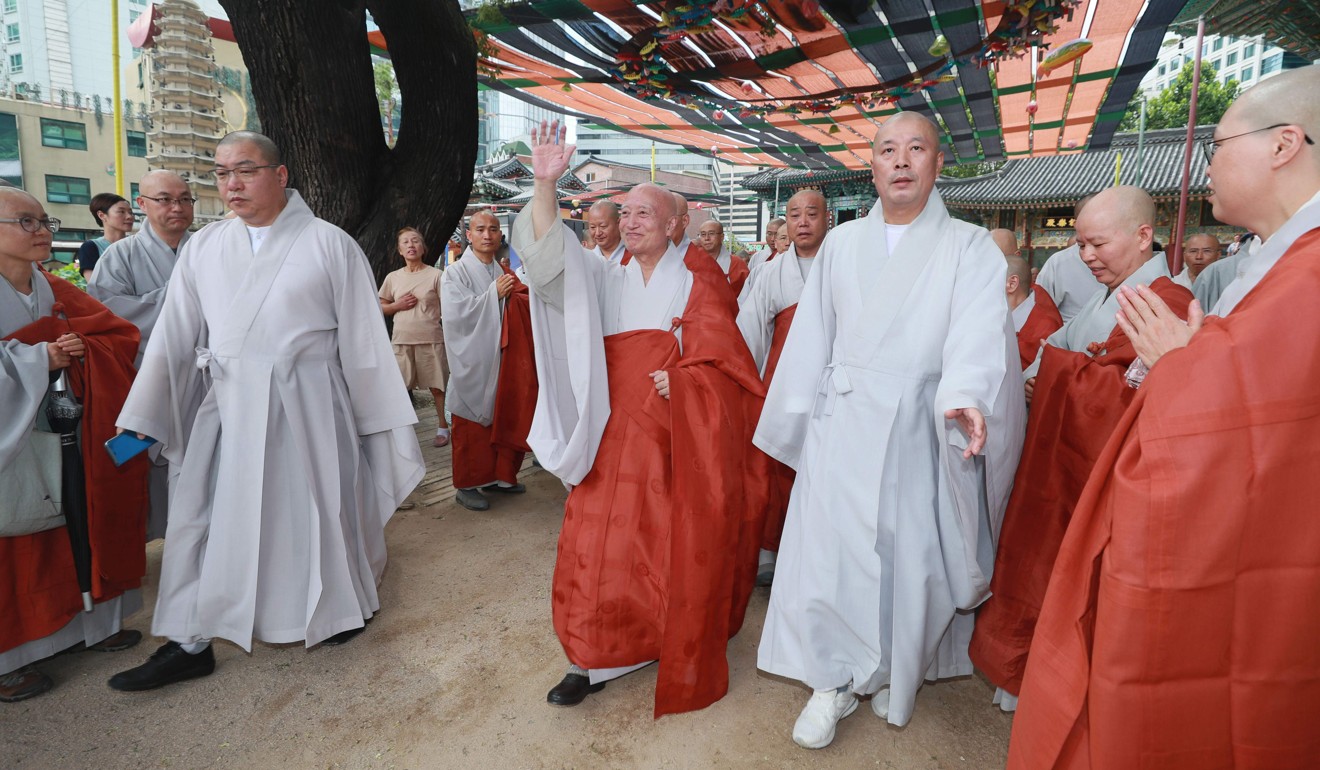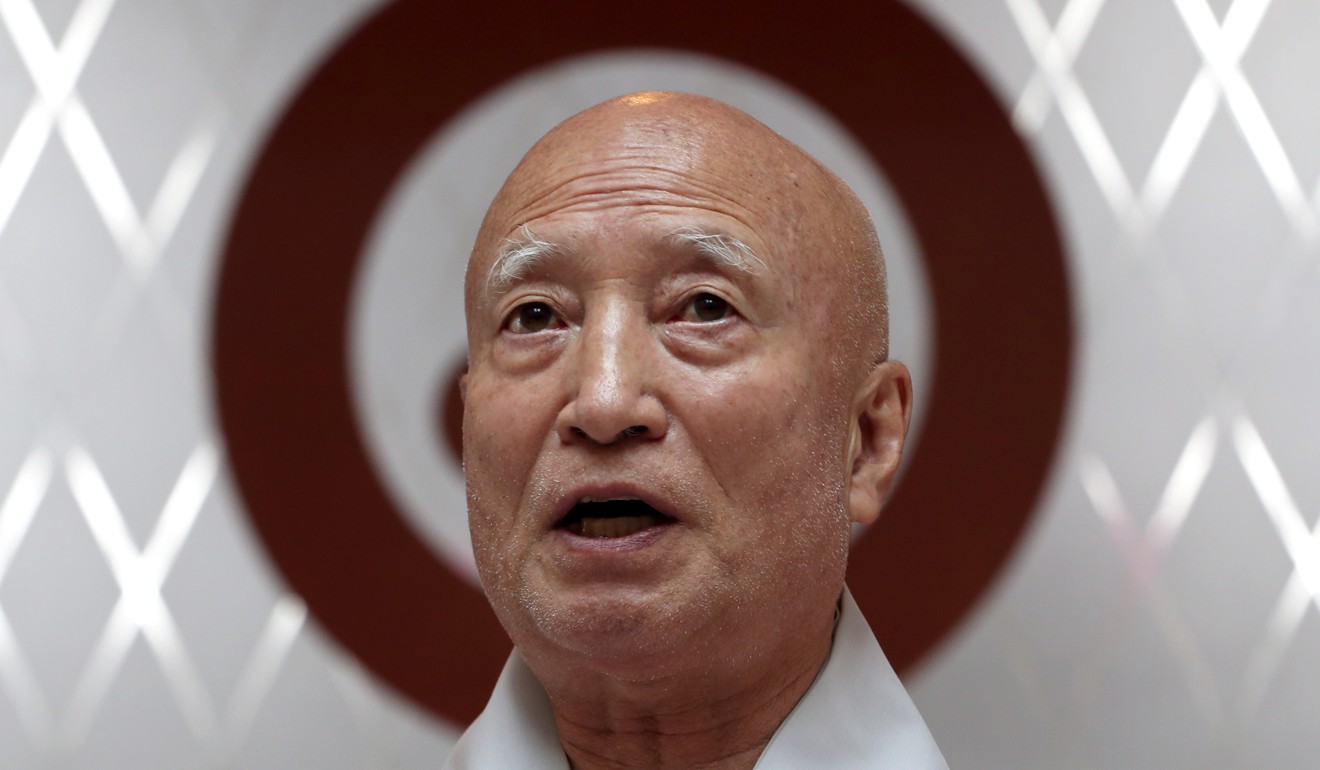
South Korea’s top Buddhist quits over corruption and fatherhood allegations
Pressure mounted on monk since reports in May that he breached celibacy rules and secretly owned vast real estate holdings despite his vow of poverty
The head of South Korea’s biggest Buddhist denomination stepped down on Tuesday amid allegations that he forged his academic credentials, amassed vast wealth and fathered a child in breach of celibacy rules.
With more than 3,000 temples, 13,000 monks and 7 million followers, the Jogye Order is followed by most of South Korea’s Buddhists and is highly influential in a country where religion is a powerful social force.

But it has long been dogged by corruption allegations and factional feuds that often spill over into the headlines.
The resignation of Jogye president Seoljeong came days after he lost an unprecedented confidence vote by the order’s governing committee.
The 76-year-old bid farewell to the followers and officials at the order’s headquarters in Seoul and left for another temple south of Seoul where he had previously served for years.
“I joined this religious sect to bring changes to the flawed Korean Buddhism but will have to return to the mountain having failed to fulfil my wish,” he said at a press conference.
Seoljeong would probably have been forced out of the job at a Wednesday meeting of the order’s elders.
Pressure had mounted on the monk since an investigative television programme claimed in May that he had fathered a daughter in breach of celibacy rules, and secretly owned vast real estate holdings despite taking a vow of poverty.
The investigation also revealed that the nation’s top university denied Seoljeong had graduated from the institution, contradicting a claim made in his autobiography.

Many rank and file members and civic groups staged months-long protests demanding his resignation, and a senior reform-minded monk was recently admitted to hospital after a conducting 41-day hunger strike against the monk.
Seoljeong, who took office last November, has denied all the allegations, accusing an “old guard” within the order’s leadership of derailing his reform drive by framing him.
He repeated the denial on Tuesday, claiming that “a handful of politically-minded monks are destroying the order”.
A 2014 survey by Korea Gallup showed 22 per cent of South Koreans identify themselves as Buddhist, while nearly 30 per cent are Christian.

.png?itok=arIb17P0)